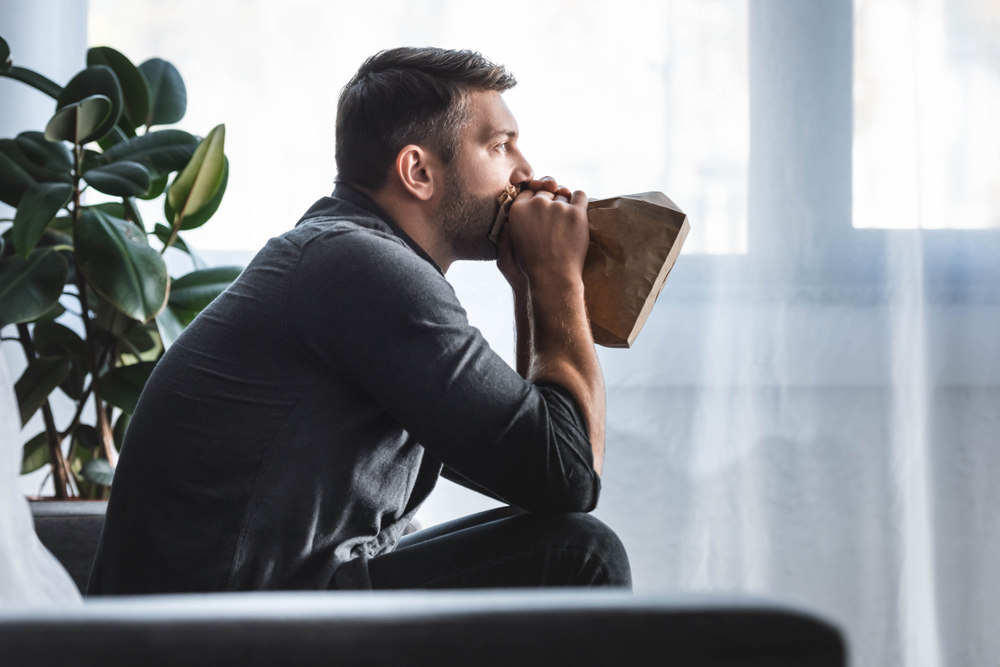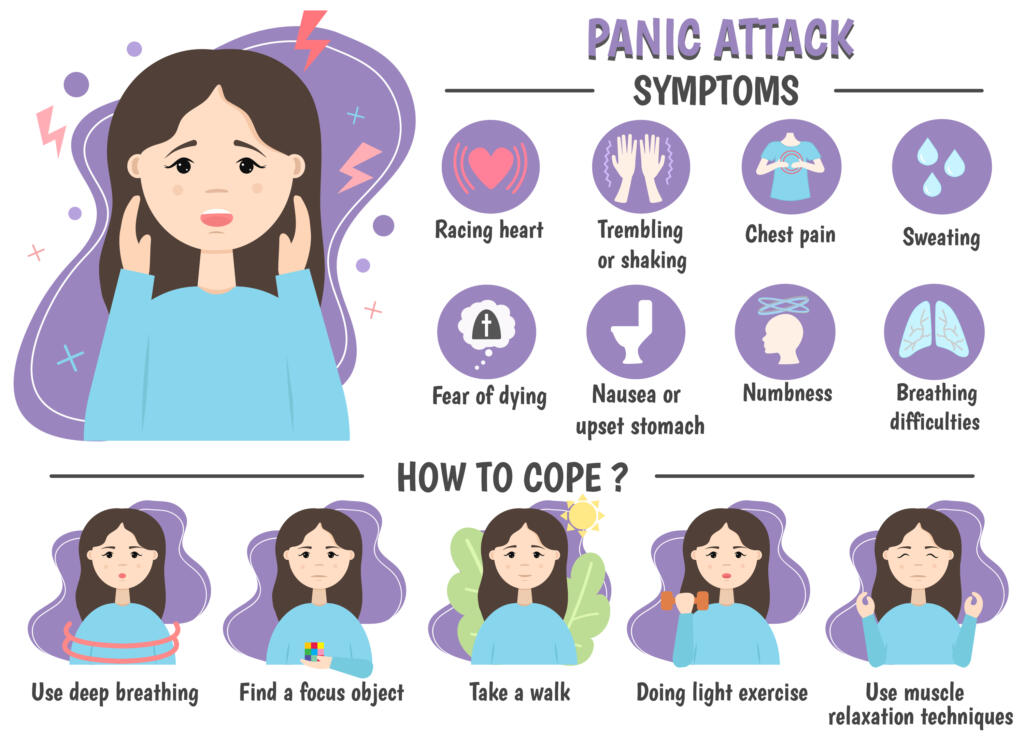
Are you waking up with a panic attack after drinking alcohol the night before? Or are you getting panic attacks the next day after drinking? If you are having panic attacks, whether before, after or during the consumption of alcohol, then you may be wondering why that is.
It is common for you to go through your whole life without having a panic attack, and then one day, it happens. It is also common for people who abuse alcohol or any substance to have panic attacks. So, what are panic attacks, and why do we have to start having them when we abuse alcohol?
It may seem like alcohol would get rid of our anxieties, right? But all it does is flush us around in a vicious cycle of stress that is very difficult to escape. In fact, 25% of people with social anxiety issues are likely to develop a problem with alcohol.
It may seem that alcohol is the quick fix to your socialising skills, but drinking alcohol only makes you more anxious, and when you get more nervous, you will likely drink more to mask it, spiralling downwards. You end up see-sawing between alcohol and anxiety.
Anytime our body is processing alcohol, it is a stressful event, which can add to any anxieties we may already have. However, meeting stress with stress can only have one result – worsening stress.

Abusing alcohol on a night out doesn’t come without its price. When we drink alcohol, it affects GABA (an inhibiting neurotransmitter in the brain), making a person feel calm and acting as a depressant and sedative. However, when the alcohol wears off, GABA levels decrease, which triggers an anxious, exaggerated and overstimulated state.
Any panic attack you have after a night of drinking results from amplified emotions. In other words, you will worry and fear things you usually wouldn’t.
The experience of an amplified sensory experience can be very unusual for us, so to wake up and suddenly be hit with a wave of overstimulation leaves little wonder as to why we have panic attacks.
A night heavy night of drinking may require some severe withdrawal symptoms, which may include:
It may seem obvious by now, and because it is, reducing or stopping your alcohol intake will reduce the experience of panic attacks. It may even stop them altogether. Even though it seems obvious, that doesn’t mean it is easy. It is common for those who abuse alcohol to struggle with reducing their intake on a night out, so most stop drinking altogether.
Suppose you are seriously considering reducing your alcohol intake. In that case, it is worth reducing how much you go out, or if you are drinking in the house with friends regularly, then perhaps you could go somewhere that doesn’t serve alcohol.
If you are drinking to ease your feelings, this is a way of self-medicating with alcohol. However, the cycle of this attempt at reducing anxiety can quickly turn into a process which can lead to alcoholism if you are not careful.
Now, this doesn’t seem fair. The temporary fix for your anxiety is what breaks the cycle of stress and panic. Short-term, it is another challenge you probably don’t need, but it is about what is effective when dealing with our anxieties long term.
Stopping drinking can be a challenge, especially when you add anxiety and panic attacks into the mix. An abstinent environment can be helpful. A detox and mental health rehab are both great options if you are struggling with alcohol misuse and panic attacks. The good news is that plenty of other anxiety-reducing alternatives exist.
Here are some tried and tested methods to reduce our anxieties outside alcohol and other substances.
Sometimes, an open discussion with a friend or family member about how you feel is all it takes to overcome your anxiousness.
Exploring our feelings and talking about them to ourselves or others can teach us that we are never too far away from feeling better. Group or individual therapy is a safe space for you to talk about your fears, concerns and feelings without worrying about judgment or being misunderstood.
There are endless guided meditation videos on Youtube that encourage various breathing techniques to instil a sense of calm.
Stress and anxiety may seem as if they come from one place, but nothing is any one thing; it’s a mixing pot, so it makes sense to mix things up when looking at what could reduce your panic attacks.
Let us take a diet; if we are not eating properly, it can affect how our body functions. If the body is not getting what it needs, it is stressful. So, looking at how you can form a healthy, nutritious diet may work wonders for your mental health.
Have you ever heard people talk about getting by with only 6 hours of sleep? I have. Evidence shows that if we get less than 8 hours of sleep regularly, the body shows signs of sensory impairment.
Making sure you get enough rest is critical to reducing anxiety. Getting enough sleep is vital; rest can come in all kinds of ways; relaxing with friends, cooking a nice meal and watching your favourite show or taking a walk in a quiet area in the fresh air.
There are so many ways to find calmness and confidence outside of alcohol. Assessing your drinking habits and seeking professional advice comes above all else if you feel you are heading towards alcohol addiction.
If you have any questions regarding alcohol-induced panic attacks or substance use, please call our team now, and we can discuss any enquiries you may have.